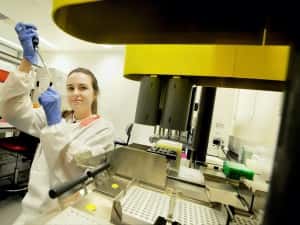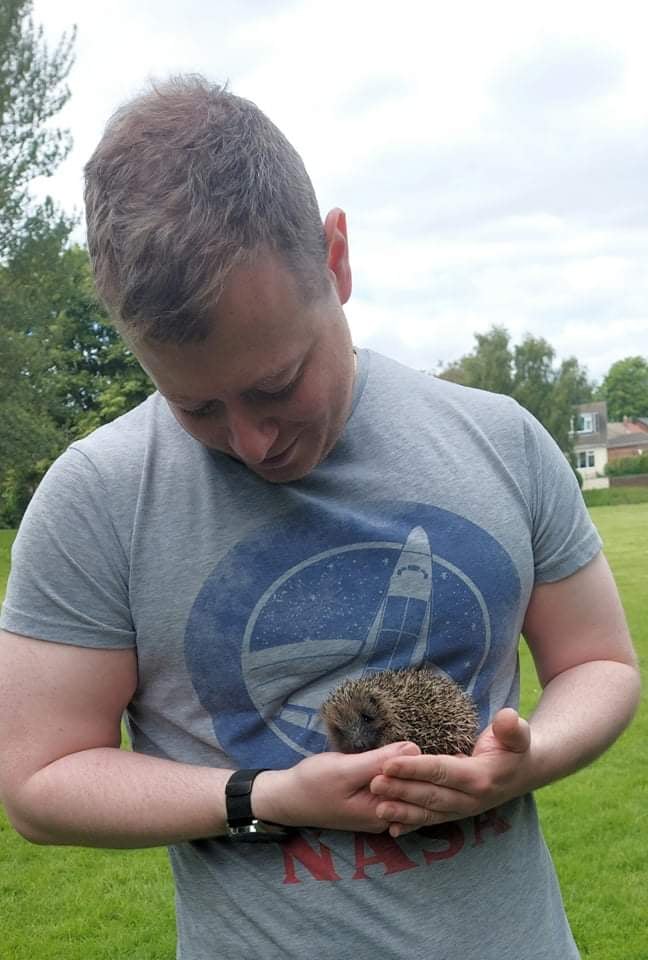
A University of Sunderland graduate has developed a genetic test offering hope to blood cancer patients.
Patients can now discover if they have a less aggressive form of Acute Myeloid Leukemia (AML) and the level of treatment needed thanks to the clinical test set up by Chloe Richardson.
Chloe Richardson set up the test as part of her placement, in the third year of her degree, at The Newcastle-upon-Tyne Hospitals NHS Foundation Trust Northern Genetics Service, at Newcastle’s International Centre for Life.
As her final year research project she developed a test to identify genetic mutations carried in certain patients, indicating whether they would be likely to have a less aggressive form of the blood cancer.
This offers hope for their long-term survival, potentially without the need to undergo a bone marrow transplant.
Previous attempts to sequence this particular genetic mutation had proved problematic.
However, Ms Richardson said by experimenting with various experimental conditions she was successful in detecting mutations in the gene.
She was then able to optimise and validate a diagnostic test to identify the mutation in patients and offer them hope for the future.
Previous standard haematology tests did not determine whether patients carried the mutated gene.
The 23-year-old, Applied Biomedical Science graduate, from Newcastle said: “It feels incredible to be part of research which benefits the lives of others and offers hope for the future.
“This is why I am passionate about genetics, particularly how genetics influence diseases; it’s endlessly interesting to me.
“Working at the Centre For Life was a huge opportunity and I wanted to get as much out of the experience as I could and make an impact.
“My work looked at certain genetic mutations that can occur in patients with leukemia, which show how aggressive that leukemia is.
“I was looking for a certain mutation in which the overall outcome is good.
“The patients will still need chemotherapy it may just be less aggressive.
“In some cases the result will determine patients who will not need to undergo a bone marrow transplant.”
The Northern Genetics Service is delighted with the outcome and have begun to use it as part of the standard diagnostic testing for this type of cancer.
Gavin Cuthbert, head of cancer cytogenetics at the Northern England Haemato-Oncology Diagnostic Service said: “Identification of acquired genetic changes in leukaemia and other cancers for patients across the Northern England region is a significant part of our work in the Northern Genetics Service.
“Chloe’s project has been of great benefit to our service, allowing us to identify a novel sub-type of AML – assisting with the diagnosis of this particular type of leukemia.
“Such cases are associated with a much better survival and therefore their management will be changed accordingly. It is a very positive addition to our testing strategy for AML.”
Dr Noel Carter, senior lecturer in Molecular Biology in the department of pharmacy, health and well-being at the University of Sunderland, added: “Chloe was always a model student but going out on clinical placement has had a number of benefits for her.”
Ms Richardson spent her final degree year, working between the Centre for Life, to ensure her research work is running smoothly and fitting in her studies.
“She graduated as a biomedical scientist and is qualified to work in the NHS at that level, and has gained valuable lab experience.
“All of this helped her in obtaining the highest possible degree classification.”
Chloe became the first in her family to graduate at the annual award ceremonies in July at the Stadium of Light, during the summer graduation ceremonies, where thousands of students received their degrees from Chancellor Steve Cram.



